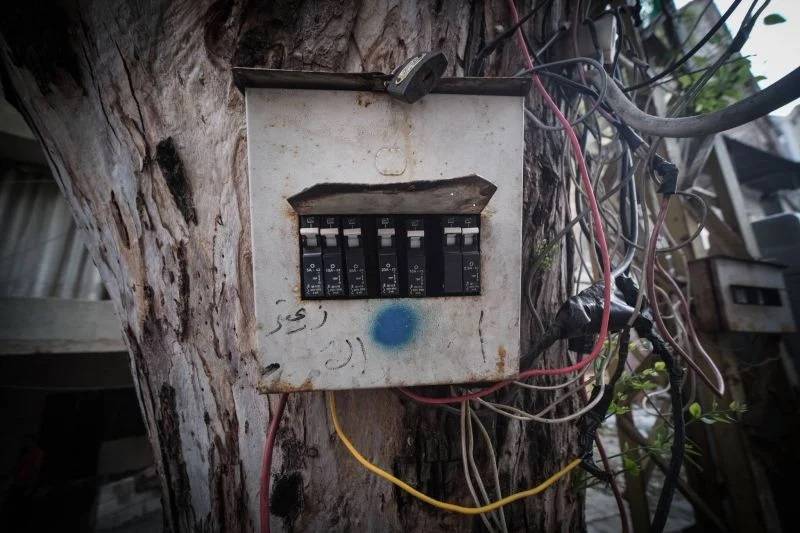
The price per kilowatt-hour produced by private generators for the month of September 2022 increases by 18.51 percent compared to that of August. (Credit: João Sousa/LOrient Today)
BEIRUT — The price of a kilowatt-hour (kWh) of private generators during the month of September is now at LL16,350 compared to the previous month's price of LL13,796, the Energy Ministry announced Friday. This increase in price comes as many households across Lebanon were at times completely deprived of electricity for days on end during the last two weeks, due to the disruption of fuel distributions for private generators.
This increase comes as an added economic weight in the context of an economic crisis that has already lasted for more than three years. In accordance with the applied modalities, this tariff, which increased by 10 percent in mountainous regions (more than 700 meters above sea level) and in some rural areas, increased to LL17,985 per kWh.
Rising crude oil prices and exchange rate
The September tariff was calculated based on the average price of fuel oil valued at LL809,467 per 20 liters, in a context of rising global fuel prices in the wake of the Russian-Ukrainian conflict that broke out in late February, and against the backdrop of the collapse of the Lebanese lira against the dollar. This level represents a major increase of 19.17 percent compared to the previous month (LL679,241 per 20 liters of fuel oil).
As every month, the ministry also accounted for additional costs incurred by generator operators (change of oil, filters and other parts), as well as the depreciation cost of the generator itself, using an exchange rate of LL36,747 per dollar, compared to a rate of LL32,220 in August. These rates also include a 10 percent margin for the benefit of the operators.
To calculate the total bill, the price per kWh must be multiplied by the consumption. In addition, there is a flat rate that varies according to the maximum current delivered in amperes (A). For a maximum intensity of 5 A, the monthly flat rate has once again been increased by LL10,000, to LL120,000, up from LL110,000 from the previous month. Similarly, 10 A has also been revised upwards to LL240,000, against LL230,000 in the previous month. The ministry also imposed an increase of LL120,000 for each additional 5 A from 10 A, identical to that of the previous month.
The ministry has also maintained the specificities introduced for elevators and for common areas of buildings connected in three-phase, indicating that their fixed tariffs will be calculated on the basis of a single-phase installation. For example, if an elevator and common areas have a 15 A three-phase circuit breaker, their fixed tariffs will be calculated on the basis of a capacity of 15 A, and not 45 A, and would account for LL360,000, not LL1,080,000.
The Ministry of Energy and Water has once again called on generator owners to comply with the decision of the Ministry of Economy and Trade regarding the obligation to install meters. While this obligation implemented in 2018 is imposed on all members of this sector in principle, and not abiding by it is illegal but tolerated due to the chronic and increasingly accentuated deficiencies of the official supplier Electricité du Liban (EDL), a significant portion of them have refused to comply and continue to apply flat rates, often aligned with those of the ministry and sometimes required in dollars.
